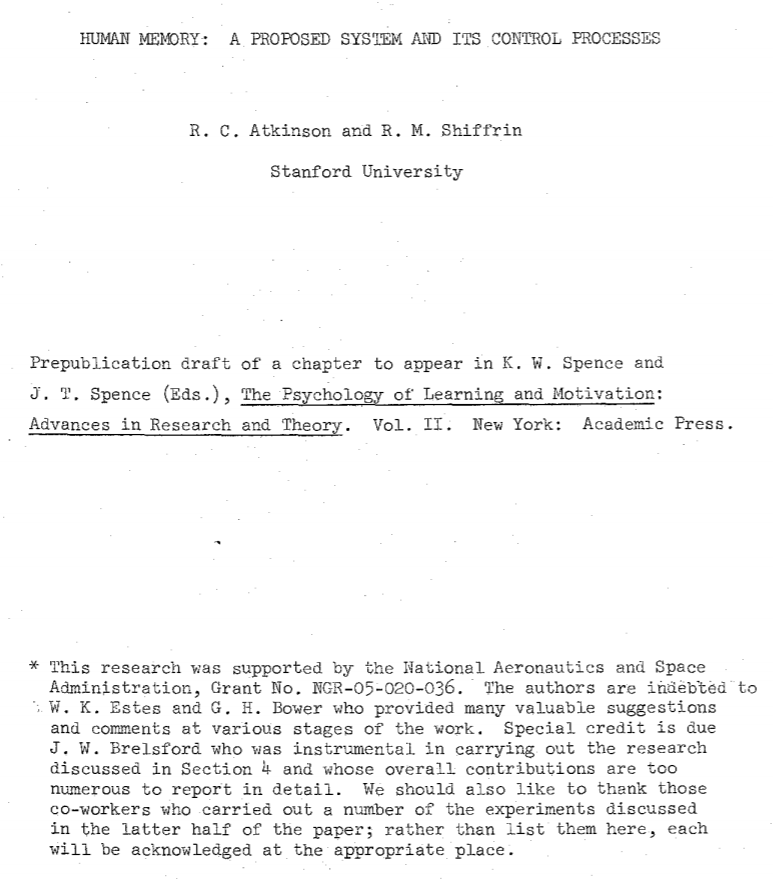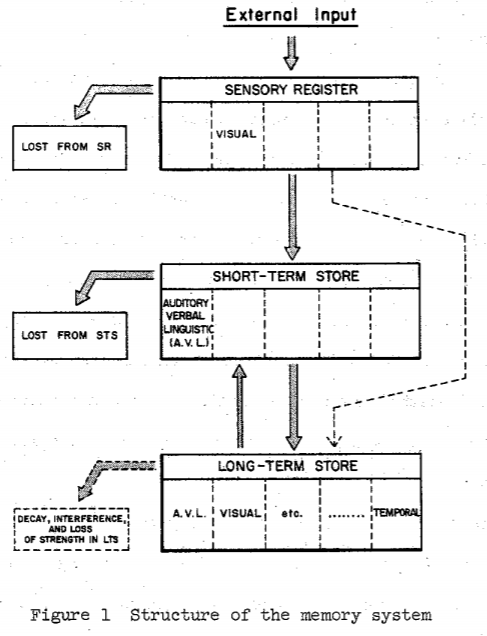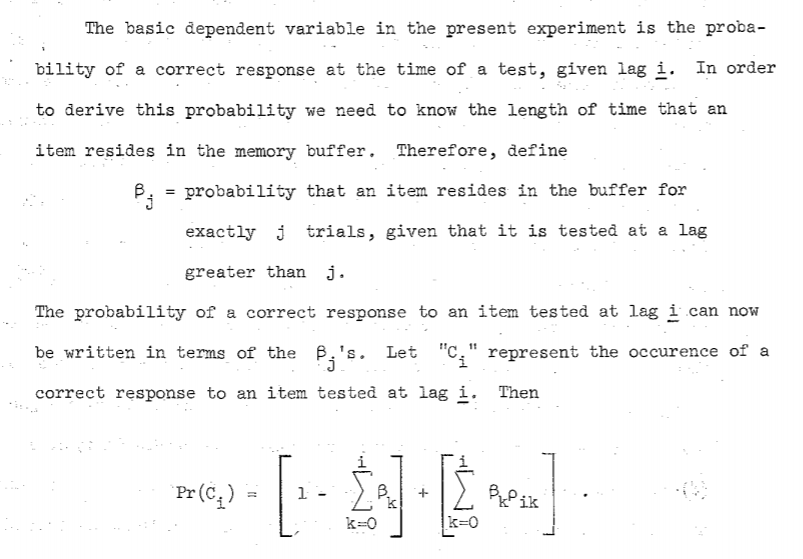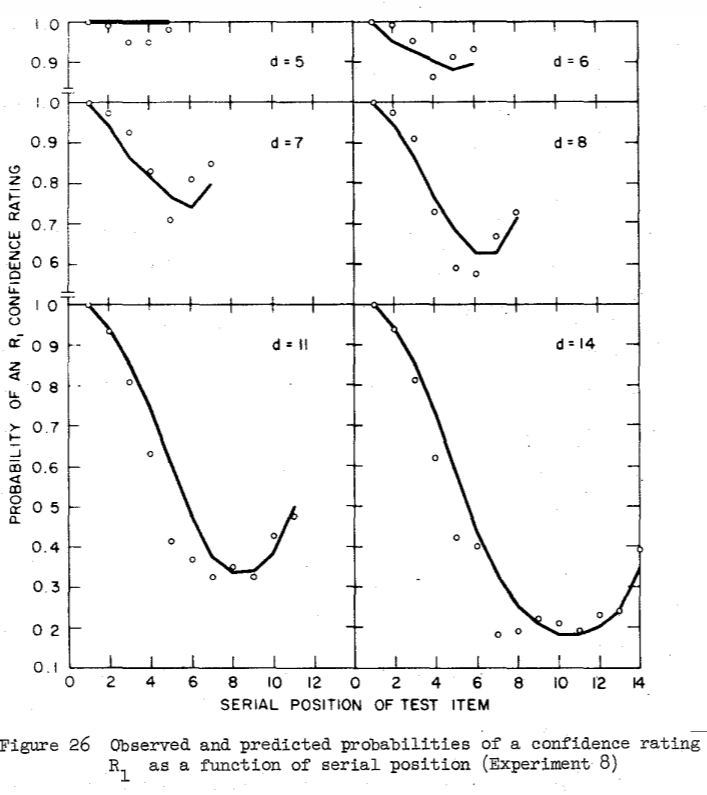In 1967, the average house in the U.S. cost $14,250, compared to an average annual income of $7,300. Gas was 33c a gallon and a new car cost $2,750 on average. Before you get too nostalgic, remember that at the same time 475,000 American troops served in Vietnam, and Muhammad Ali was stripped of his boxing world championship for his refusal to serve in the U.S. Army.
Turbulent times.
In science, the Apollo space program gathered speed, notwithstanding the tragic fire on the ground that destroyed Apollo 1. The body of American psychologist Dr James Bedford became the first to undergo cryopreservation, and Chimpanzee Washoe started to learn American Sign Language (she died at age 42 in 2007). Desmond Morris published The Naked Ape.
And in psychology, Richard C. Atkinson and Richard M. Shiffrin published the results of several years of research in Human Memory: A Proposed System and its Control Processes. This chapter is clearly one of the most influential contributions to cognitive science ever published: It has been cited more than 10,000 times, including 128 times in 2019 (according to Google Scholar).
An initial version of the work appeared as a Tech Report in 1967, and it is worth going back to the original rather than settling for the textbook caricatures of the work. Here is the title page:

One of the paper’s main contribution was to outline the structure of the memory system as it was understood at the time:

The article then goes on to cover the control processes that are involved in memory storage and retrieval. This aspect of the work appears to be under-appreciated: most textbooks will show a figure similar to the preceding one and focus on the presumed structure of memory, giving short thrift to the control processes that Atkinson and Shiffrin considered to be a crucial aspect of memory performance.
The article also reports data from a number of experiments, some of which used fairly sophisticated dependent variables:

The results were compared to quantitative predictions from a theory, setting a new standard in precision that even today are not universally achieved:

In summary, for anyone interested in memory research, going back to the original Atkinson and Shiffrin paper is a striking and valuable experience. Even today, a lot of the theoretical developments reported in 1967 continue to ring true.
From tomorrow (Monday 6 May 2019) onward, the next digital event of the Psychonomic Society, #AS50, will join in the celebration of 50 years of memory research since the publication of Atkinson and Shiffrin’s seminal paper. The Digital Event accompanies the publication of a special issue of the Psychonomic Society’s journal Memory & Cognition. The special issue comprises almost 20 articles that are authored by prominent scholars of memory and cognition.
The following posts, listed in the likely order of their publication, will contribute to the event from Monday onward. The following posts are scheduled for publication throughout the week:
- Monday: Guest editors Ken Malmberg and Richard Shiffrin provide an introduction and highlight the two key advances of the work: the mathematical formulation of cognitive processes and the interplay between rigorous theory and comprehensive data.
- Tuesday: David Kellen delves deep into the original paper and discovers how much of the theory-focused approach is still relevant today.
- Wednesday: Candice Morey suggests that we should not be afraid of taking some ‘precisely wrong’ turns on the journey to ‘precisely right’ – because the alternative of just ‘roughly right’ was not where we intended to end up.
- Thursday: Lisa Fazio takes up the ‘control’ component of the original work and asks when participants’ taking control does and does not improve memory.
- Friday: Diane Pecher looks at how contemporary memory modelling can inform our memory performance in everyday life.
Much to look forward to—please tune in for all of next week.
